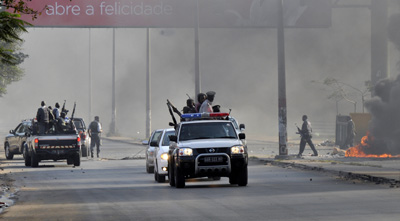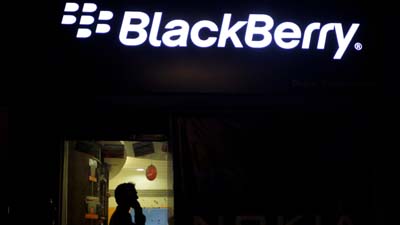More on certificate authority proliferation
Cryptographer Bruce Schneier linked to my Slate piece on rogue certificate authorities (CAs), which could allow governments like the UAE to monitor even the supposedly secure communications of journalists and others. The smart comments include a link to this fascinating discussion at Mozilla that shows the procedures that browser-makers use when deciding which certificates to…

New media tools bring Mozambican crisis to the world
This week’s deadly unrest in Mozambique became a global news story in part because reporters and citizen journalists used new media and social networking tools. Clashes between security forces and people protesting rising prices in the capital, Maputo, left at least seven people dead and more than 200 people injured, according to the latest news…

After outcry, Jordan rolls back repressive measures
Jordanian journalists succeeded this week in turning back some of the most repressive aspects of a new law on cyber crimes. The initial version of the law, approved by the cabinet of ministers on August 3, included broad restrictions on material deemed by the state to be defamatory or to involve national security. It also…

Malaysia power firm can’t take joke, prosecutes blogger
New York, September 2, 2010–The Committee to Protect Journalists calls on authorities in Kuala Lumpur to drop a criminal charge against blogger Irwan Abdul Rahman. He was charged today with “intent to hurt” in connection with a satirical entry on his blog, nose4news, that made fun of Malaysia’s state-run power company Tenaga, news accounts said.

What should journalists know about BlackBerry fights?
The discussions between Research In Motion, maker of the BlackBerry, and governments such as the United Arab Emirates, Saudi Arabia, and India continue to hit the headlines. In each case, disagreements center on providing customer communications to security and law enforcement services. The rumblings from these nations over monitoring powers aren’t just limited to RIM:…
Global Voices Advocacy: Great Firewall of China Upgrade?
Oiwan Lam reports widespread disruption for users of Freegate, the popular circumvention software in China: According to the RFA report, users from several provinces across the country have encountered similar problem and they believe that it is due to the upgrade of Great Fire Wall. Apart from the Freegate, when running UltraSurf and FreeU the…
The Economist: The Invisible Regional Censorship of Russia
Russian federal law doesn’t include Internet censorship provisions, but there’s been a recent rash of cases of court-ordered blocking in individual Russian regions. Even though these are usually narrow blocks of particular sites and are quickly unblocked after media exposure, they can still cover a great deal of ground. The Republic of Ingushetia blocked the…
NYT: In Argentina, Google and Yahoo Not Liable
The New York Times reports on a new decision in the liability of internet intermediaries, this time in Argentia. It’s often hard to pick apart exactly what’s been going on in jurisdictions where this issue still evolving. Generally, you get a flurry of conflicting court decision in favour of absolute liability for Net middle-men, usually…
Beat censorship by hiding secret messages in Flickr photos
Georgia Tech researchers have developed a tool called Collage that will allow Internet dissidents to insert hidden messages into Twitter posts and Flickr images in order to circumvent the censorship measures imposed by oppressive governments. The details of this technique (which you can find in Georgia Tech’s netops website) contain some detailed thinking about how…
Analysing Tunisia’s Net censorship
Obviously all of these assumptions are mere speculations. This is an effort on our part to try to better understand one of the most secretive system of repression in Tunisia and to help demystify its processes. And obviously, we invite anyone with further information to make them public, and a fortiori, it may be that…